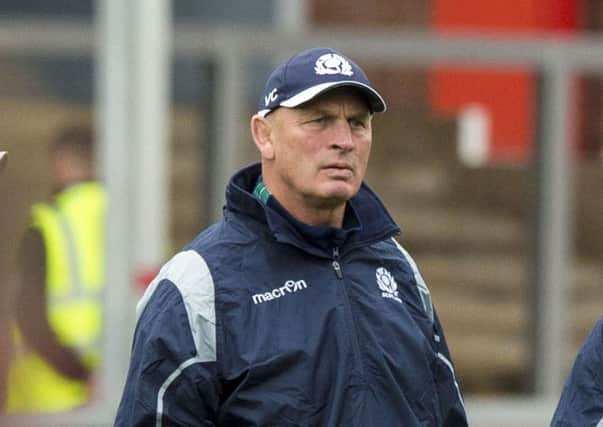Allan Massie: Dangerous Samoa have point to prove


They can’t qualify for the quarter-finals, but beating Scotland would be some sort of redemption for their earlier failures. They are a better side than they have so far shown themselves to be, and will be dangerous, especially if they get their tails up and enjoy an early lead.
Though Scotland got ahead in the first half against Japan by kicking penalties, it wasn’t till the second that they began to impose themselves. Eddie Jones, Japan’s talkative coach, had previously remarked that Scotland were a team that scored its points in the first 40 minutes and then fell away. Quite the reverse has been the case. We haven’t had a good first half yet. South Africa dominated us from the kick-off and took a grip which they never looked like relaxing.
Advertisement
Hide AdAdvertisement
Hide AdToday, for the first time, Vern Cotter is fielding – is able to field – what he probably considers his best XV. So there can be no excuses. It’s a game that Scotland must win, and should win by a comfortable margin. If we don’t, then Cotter’s position will be almost as uncomfortable as Stuart Lancaster’s.
England’s departure was less surprising, after they had lost to Wales, than the number of pundits who predicted that they would beat Australia. I don’t know if the pressure got to the players, but it does seem to have disturbed their coaches’ judgement. From the moment they omitted Luther Burrell from the cup squad, they committed themselves to abandoning the style they had been developing over the course of the Six Nations, with George Ford at 10 playing close to the gain line. The Sam Burgess business seemed to scramble their minds, and one wonders just how much influence was exerted from headquarters to include him in the squad. We’ll probably never know, because I doubt if the promised review will address that question. Meanwhile, one pities the England players picked for the dead match against Uruguay. Run up a cricket score and they’ll be called flat-track bullies. Fail to do so, and… it doesn’t bear thinking of.
Still, England’s exit doesn’t seem to have impaired public enthusiasm for what is turning out to be a splendid tournament, one to which the performance of the so-called minor nations has contributed more than ever before. Japan have obviously led the way, but they have all had their moments. Japan and Canada have shown that it is still possible for hookers to strike and win quick ball – Rory Best was actually doing that too for Ireland against Italy last week. So there is no need for the ball to sit between the front rows like a precious egg that mustn’t be damaged by any contact with a boot.
It’s too early to make predictions about the knock-out stages. The All Blacks have hardly been tested – except for a bit by Argentina – and, not being tested, have been unusually careless. They may be more vulnerable in the quarter-final than if they get through that match. Would they rather play France or Ireland? Ireland, Six Nations champions, haven’t quite clicked yet. They struggled to beat Italy last week. Joe Schmidt is held in such high regard that we wonder whether he has Ireland holding something in reserve. France have been, well, France. Moments of brilliance, lots of careless mistakes.
Elsewhere, there’s a nasty suspicion that Japan may have done nobody any favours by beating the Springboks. Giving the giant a poke in the eye has provoked him and roused him to a state of controlled fury. Against us their forwards were so dominant that there was no chance to try to run them off their feet. I didn’t think we played them that cleverly, because we were sucked in to playing them at the same power game, while our kicking from hand was never accurate enough to cause them any trouble.
Nobody in the Scotland camp will be looking beyond Samoa, or at least allow themselves to speak of doing so. Still, apart from avoiding consignment to the doghouse, there’s another intriguing carrot dangled before our men: the chance of a victory at Twickenham for the first time in 32 years. Admittedly either Wales or Australia would be a formidable opponent, but they wouldn’t be wearing white. I’m sure that, over the years,Scottish teams have told themselves that they are not doomed to lose to England at Twickenham, but performances suggest that they never quite convince themselves.
Scribblers and fans may dare to look ahead, and argue about which quarter-final opponent we would prefer. Most, I suspect, would opt for Wales, but one excellent and experienced judge suggested to me the other day that we might beat Australia because they will be – perhaps – the least physical of the quarter-finalists, and both Fiji and England made line-breaks against them. Maybe yes, maybe no. Unlike some predecessors, this Scotland team can convert a line-break into a try – especially if Stuart Hogg times and delivers his pass correctly.